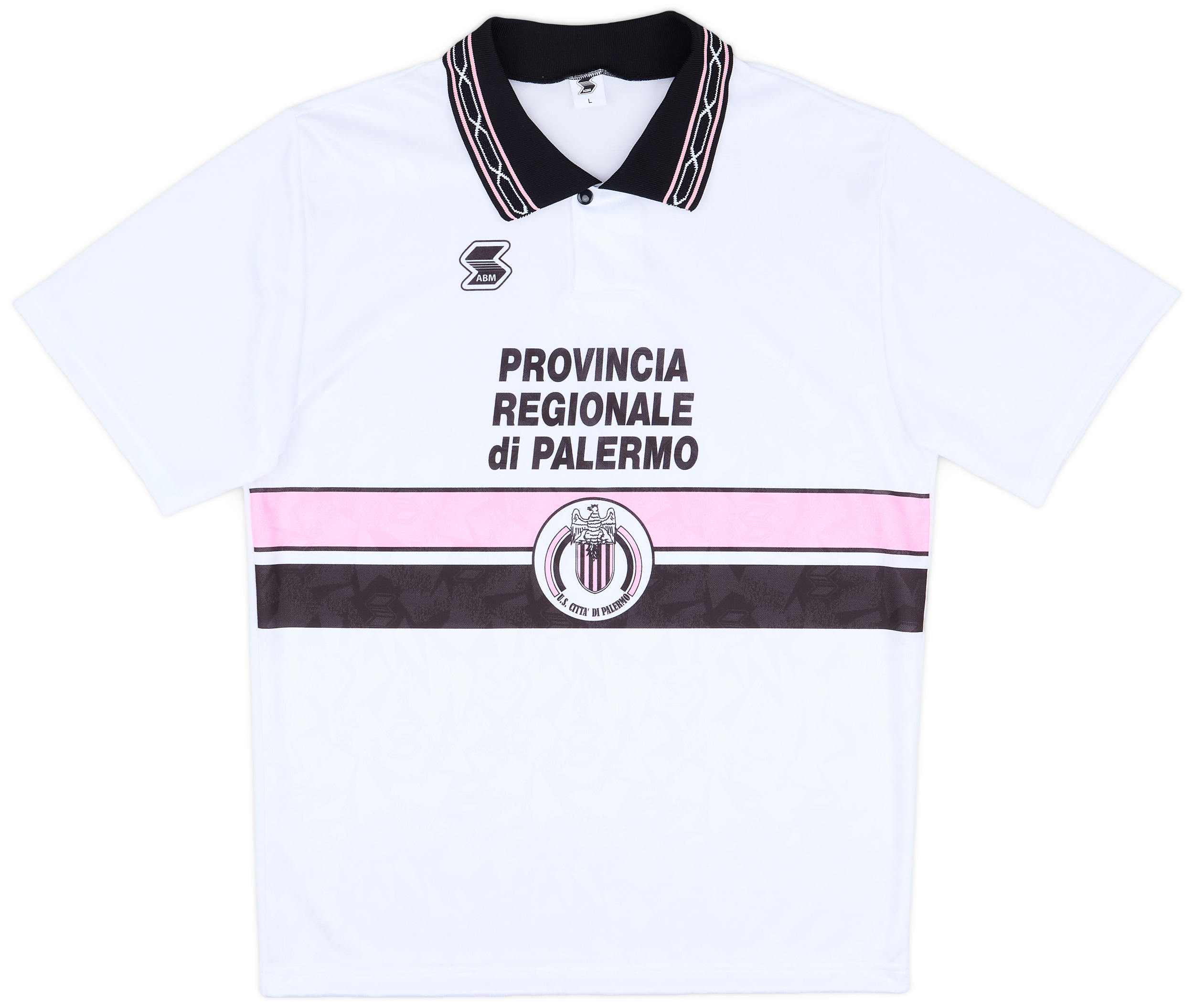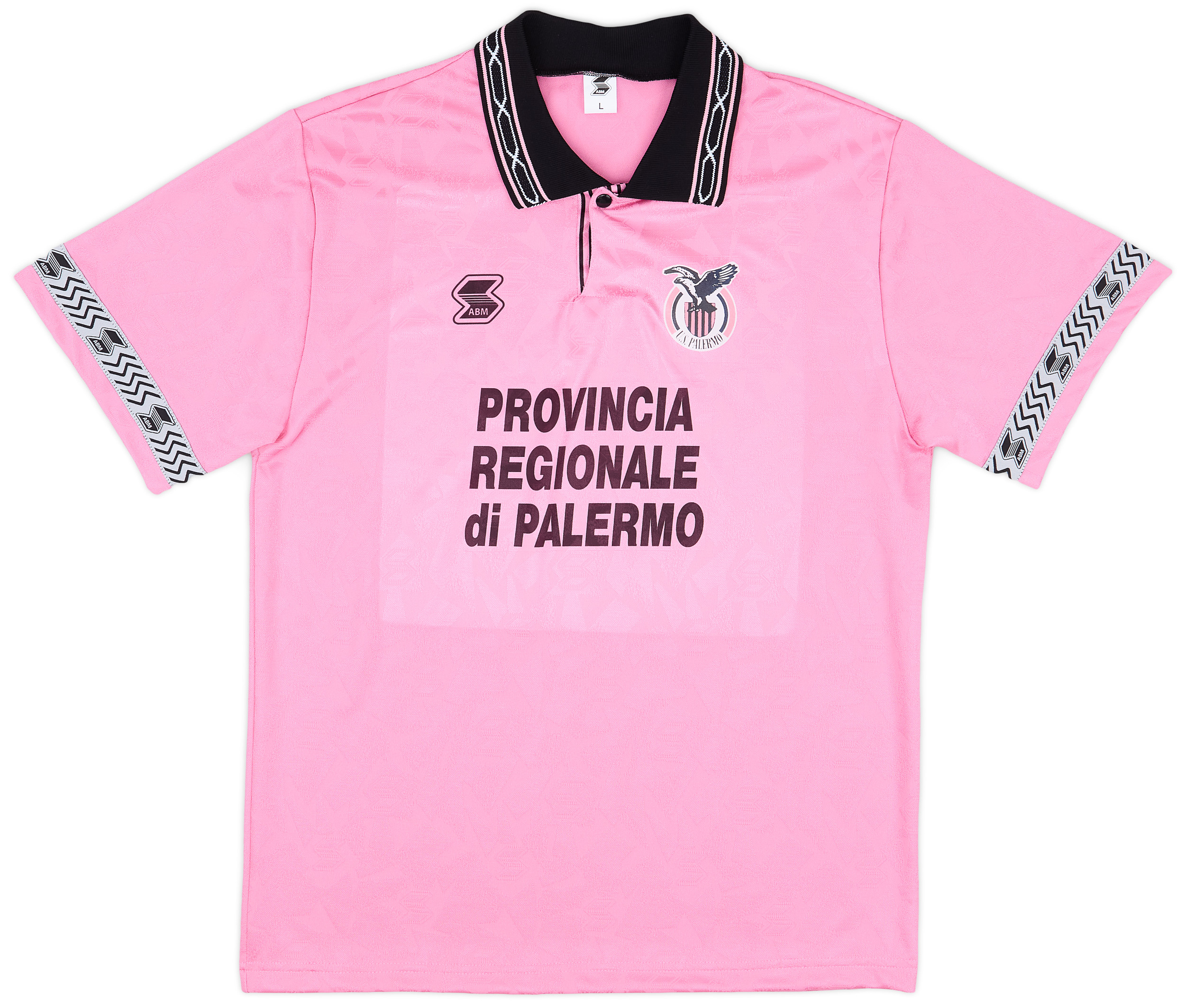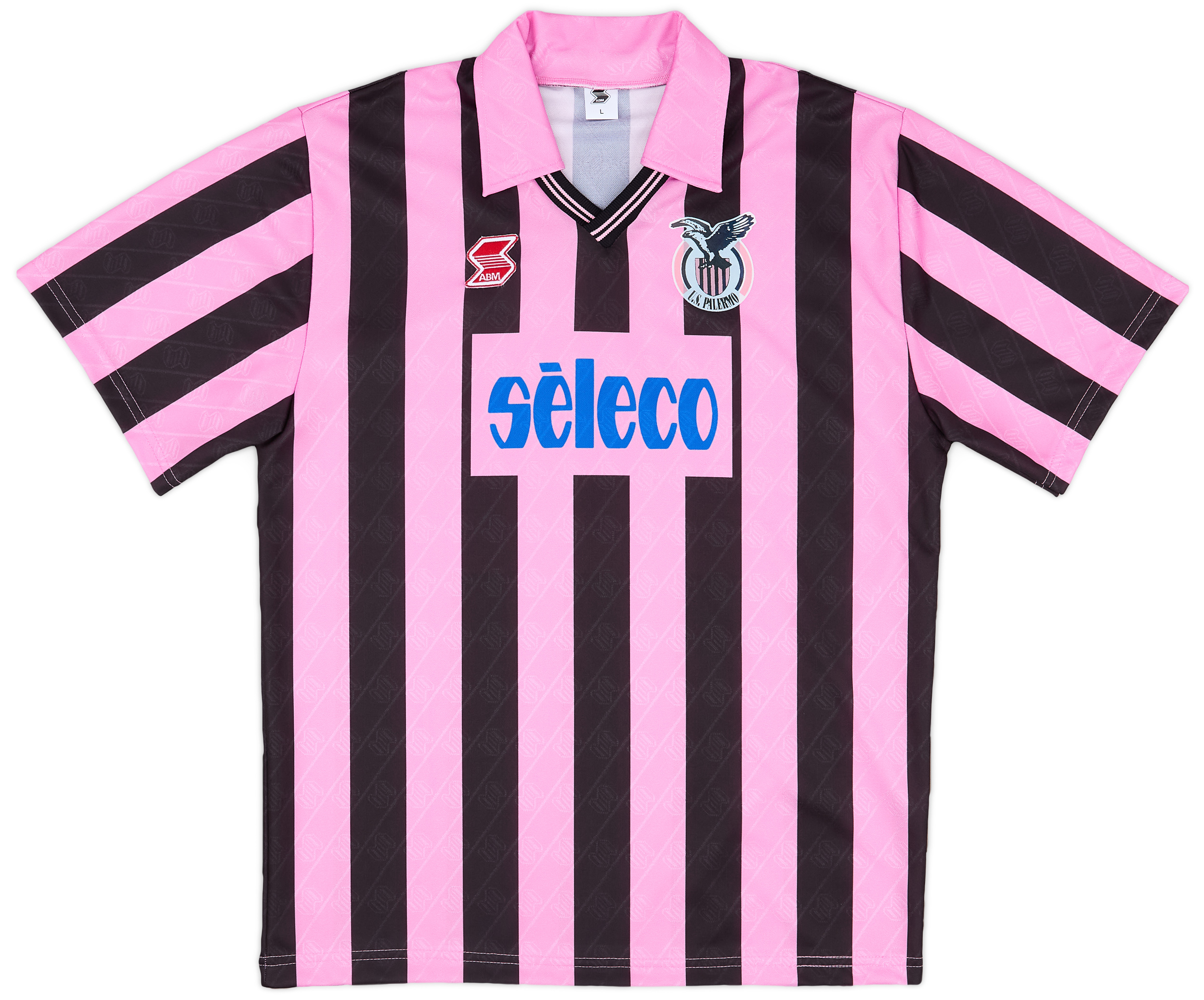Palermo
Introduction Founded in 1900, U.S. Città di Palermo is a football club that holds a prominent place in Italian football history. Based in the vibrant city of Palermo, the capital of Sicily, this club has not only shaped the local sporting landscape but has also garnered a significant following both nationally and internationally. The club’s […]
1993-94 Palermo Alternate Home Shirt #9 - 8/10 - (S)
148.99£ - ca: €176
2006-07 Palermo Away Shirt Tedesco #4 - 7/10 - (M)
118.99£ - ca: €140
2024-25 Palermo Third Shirt
103.99£ - ca: €123
2008-09 Palermo Home Shirt - 6/10 - (S)
94.99£ - ca: €112
2024-25 Palermo Home Shirt
94.99£ - ca: €112
2024-25 Palermo Away Shirt
79.99£ - ca: €94
2023-24 Palermo Home Shirt - 10/10 - (XL)
77.99£ - ca: €92
1994-95 Palermo ABM Reissue Away Shirt
77.99£ - ca: €92
2024-25 Palermo Home Shirt (KIDS)
76.99£ - ca: €91
1994-95 Palermo ABM Reissue Home Shirt
70.99£ - ca: €84
1991-92 Palermo ABM Reissue Home Shirt
70.99£ - ca: €84
1991-92 Palermo ABM Reissue Third Shirt
70.99£ - ca: €84
1991-92 Palermo ABM Reissue Away Shirt
70.99£ - ca: €84
2023-24 Palermo Third Shirt
58.99£ - ca: €70
2010-12 Palermo Legea Player Issue Training Shirt #5 - 6/10 - (L)
53.99£ - ca: €64
2023-24 Palermo Away Shirt
49.99£ - ca: €59
2004-05 Palermo Third L/S Shirt Accardi #13 - 4/10 - (L)
47.99£ - ca: €57
2021-22 Palermo Third Shirt
44.99£ - ca: €53
2005-06 Palermo Lotto Training L/S Shirt - 8/10 - (XL.Boys)
41.99£ - ca: €50
2011-12 Palermo Legea Polo Shirt - 9/10 - (M)
35.99£ - ca: €42
2010-11 Palermo Legea Training Pants/Bottoms - 8/10 - (XXL)
35.99£ - ca: €42
2006-07 Palermo Lotto Training Shirt - 5/10 - (XXL)
35.99£ - ca: €42
Introduction
Founded in 1900, U.S. Città di Palermo is a football club that holds a prominent place in Italian football history. Based in the vibrant city of Palermo, the capital of Sicily, this club has not only shaped the local sporting landscape but has also garnered a significant following both nationally and internationally. The club’s colors, pink and black, represent the lively culture and rich history of the city itself, while the emblem, featuring a native falcon, symbolizes ambition and resilience. Over the decades, Palermo has cultivated a unique identity that intertwines sports with Sicilian culture, creating a passionate fanbase known for their unwavering support.
Club History
Palermo Football Club was originally established as “Palermo Foot-Ball Club” in 1900. The club’s journey began in local leagues, and after WWII, its competitive spirit flourished. The late 1950s marked a pivotal period when Palermo achieved promotion to the Serie A, the top tier of Italian football. In 1967, the club reached notable heights by securing its first major trophy, the Coppa Italia, after a memorable final against the strong squad of the AC Milan. However, the club faced ups and downs over the years, experiencing relegation and subsequent promotions, a cycle that would shape its regional identity.
Achievements
Palermo’s illustrious journey through Italian football is marked by significant achievements. The crowning jewel in their trophy cabinet is the aforementioned Coppa Italia victory in 1974, which solidified their place in Italian football history. In addition to the Coppa Italia, the club also won the Serie B title three times (in 2004, 2010, and 2014), which showcased its competitive resilience and ability to bounce back after challenges. The club’s best Serie A finishing came in the 2005-06 season when they finished in 5th place, granting them a spot in the UEFA Cup, now known as the UEFA Europa League. On the European stage, Palermo reached the quarter-finals of the UEFA Cup in the 2009-10 season, marking a noteworthy achievement in club history.
Significant Players and Matches
Throughout its history, Palermo has been home to many notable players who have left an indelible mark not only on the club but also on Italian football. One such player is Fabrizio Miccoli, a forward often dubbed “The Little Monster.” His tenure with Palermo from 2007 to 2014 saw him become the club’s all-time top scorer with 89 goals. Matches that showcased his brilliance include the unforgettable 2008 encounter against Juventus, where Miccoli scored a stunning goal that secured a 2-0 victory over the Bianconeri. Other significant players have included Paulo Dybala, who rose through the ranks at Palermo before moving to Juventus and carving a name for himself among the world’s elite.
Cultural Impact
The impact of U.S. Città di Palermo extends far beyond the football pitch. The club acts as a cultural beacon for the people of Sicily, fostering a sense of community and pride. Home games at Stadio Renzo Barbera, filled with the roar of enthusiastic fans clad in pink and black, create an electrifying atmosphere that reflects the passion of the Sicilian people. The local economy benefits from match-day activities, with businesses thriving around the stadium on game days. Furthermore, the club has engaged in numerous social initiatives, using football as a platform for promoting inclusivity and community involvement, thus reinforcing its role as an integral part of Palermitan culture.
Conclusion
U.S. Città di Palermo is not just a football club; it is a symbol of resilience, passion, and cultural pride for the people of Sicily. Its rich history, marked by notable achievements and legendary players, continues to inspire generations of football fans. While the club has faced numerous challenges over the years, the unwavering support from its fans and the community highlights its importance in the tapestry of Italian football history. As Palermo continues to strive for success, both on and off the pitch, it remains a beacon of hope and ambition, firmly rooted in the heart of its beloved city.





















